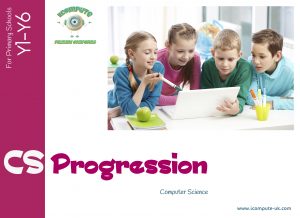
Amidst a global pandemic due to COVID-19 now, more than ever, the need to equip our pupils and, crucially, our teachers with the skills to communicate, collaborate, express ideas and learn using digital tools and technologies is pressingly obvious.
The National Curriculum for Computing was launched in England in 2014 with a key aim of ensuring that all pupils “are responsible, competent, confident and creative users of information and communication technology”. Yet, in 2020, many schools were already woefully behind in implementing the National Curriculum and, during the pandemic, it became obvious that many teachers were severely lacking in these areas themselves.
The introduction of the 2020 Ofsted Framework for Inspection and the ominous threat of Computing Deep Dives galvinised many into action early in the year. A welcome push in my view to broaden curriculum focus. School closures put paid to that threat but, with them, came the realisation that, in many settings, the technology and skills required to continue teaching and learning outside of the classroom were simply not there.
The winners in education during these difficult times have been those that were already prepared for remote learning with infrastructure, technology and skills. The losers – our children.
I’ve been supporting schools with computing curricula, resources, teaching and training since 2014. I deal with the most progressive of schools. Those that understand the need for their children to be equipped with the knowledge, understanding and skills to participate, live and learn in an increasingly digital world. Their children will thrive. But I worry about the children left behind. Those who don’t benefit from teachers and leaders with the determination and commitment to provide a robust computing education. Those who don’t appreciate that technology has the potential to transform teaching and learning in their schools and choose to put computing on the back burner again. To look at another time. When Ofsted say they’re going to.
Thousands of children in England have missed out on around six months of education. When they return to school, the focus is likely to be on catching up with literacy and numeracy. It is imperative that Computing is not neglected. As the National Curriculum points out “Computing also ensures that pupils become digitally literate – able to use, and express themselves and develop their ideas through, information and communication technology – at a level suitable for the future workplace and as active participants in a digital world.” With the ongoing threat of closures due to local lockdowns, potential pupil/staff absences for sickness or self-isolation, social distancing measures and a myriad of other potential disruptions to the education system – schools must rise to the challenge and put learning with and about technology firmly at the forefront of their planning. Starting right now.




